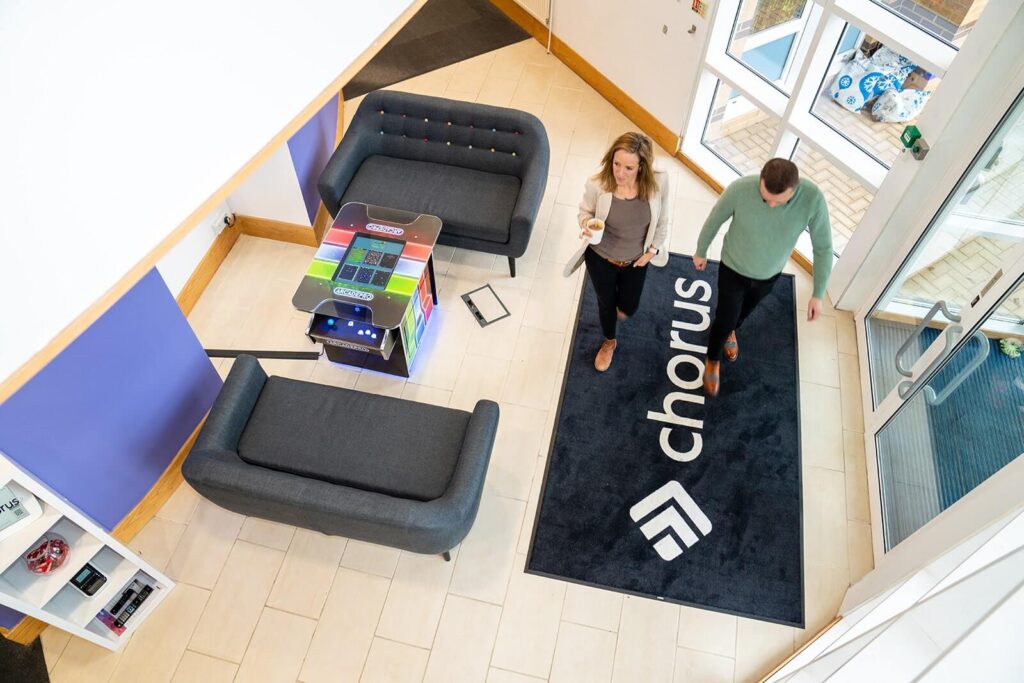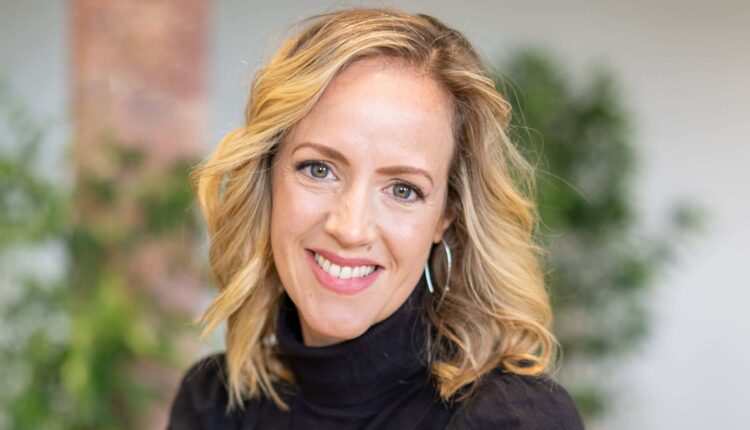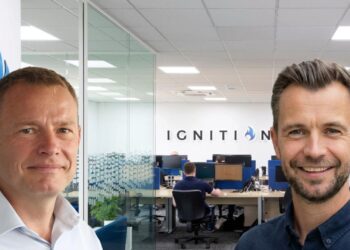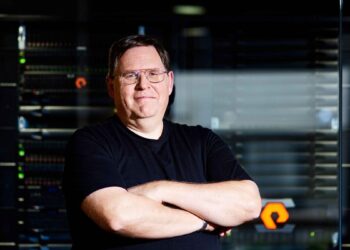MSP Chorus IT’s decision to pivot to a channel model “seemed like a crazy idea at the start”, but is “starting to pay off”.
That’s according to its MD Nicola Saner, who is aiming to transform the Bristol-based outfit into an SMB cybersecurity “world leader” with the help of distributors TD Synnex and Infinigate.
Talking to IT Channel Oxygen, Saner also lamented the lack of female-led MSPs in the UK, saying she “isn’t sure” whether the numbers have grown at all in her eight years at Chorus and four years as its MD.
“It’s overtaking the MSP side”
Having joined the preview programme for Microsoft’s SIEM solution, Sentinel, in 2018, Chorus swiftly added cybersecurity as a third stream to its business, alongside managed services and Microsoft Dynamics.
“Being technically led and specialists in Microsoft, we could see an absolutely huge gap in the market,” Saner told IT Channel Oxygen.
“But then it dawned us: if we can do this through partners, what’s available is far, far greater than direct. It did take a lot of sleepless nights to eventually go ‘let’s do it’.”

Four years on, Chorus has acquired MSP clients in the Netherlands, Italy, France, Germany and the US via TD Synnex.
It last month added Infinigate as a second distributor, with the plan now to go global, Saner said.
“It’s overtaking the MSP side. We now support more seats [in the channel SOC business] than we do in IT managed services,” she said.
“It may have seemed like a crazy idea at the start, but now the channel model is really paying off. It’s all starting to land.”
“Very hard and very expensive”
Despite the initial temptation to stick to its knitting and sell direct, Saner quickly spotted that most MSPs weren’t in a position to develop a CSOC capability – making them a lucrative target.
“It’s very hard to set up a 24-hour fully functioning CSOC centre – I’d say that 90% of companies that do sadly fail,” she said.
“You can take someone on as a tier 1 SOC Analyst and the Microsoft market can drive those salaries up 50-100% within a year or two.”Nicola Saner
“You can take someone on as a tier 1 SOC Analyst and the Microsoft market can drive those salaries up 50-100% within a year or two.”
“We’re proud of what we’ve done, but it’s very hard and very expensive, which is why a lot of MSPs can’t do it and so look to find someone who can do it for them.”
This makes company culture vital for Chorus, which has a preference for promoting from within, Saner said.
“They start off in first line, go to second line and at that point if they’ve got the right analytical mindset we’ll start driving them towards the CSOC. That’s if they’re interested, because it is a very tough job with a lot of pressures and stress if they get something wrong,” she said.
“We like to try and develop and train internally as much as we can.”

“The curriculum is aimed at male minds”
Despite recent analysis by IT Channel Oxygen suggesting that UK IT solution providers have made modest but tangible gains on gender imbalance over the last seven years, diversity is another pressing issue in Saner’s in-tray.
“It’s nowhere near where it needs to be,” she said of the number of female-led MSPs.
“We’re getting more females into particular roles, but not technical roles,” Saner added.
“If we can get some heavy-tech female leaders – third liners or consultants – that will change the industry a lot.
“It goes back all the way to schools, which is why I do a lot of talks at schools.
“You’ve got to start opening the industry up to younger people, because if you start at secondary school or college, the curriculum is aimed at male minds and so when you do get females in the dropout rate is really high.
“There’s a lot we could be doing to change things, and it’s too slow at the moment.
“IT in some areas still has a little too much of the historical white middle-aged male presence, some great strides have been made, but we are still going to miss out on a lot of exciting talent and ideas if we don’t continue to push on that front.”
“I don’t want to grow too quickly”
Chorus’ decision to move into cyber came just as an increasing number of organisations were being hit by ransomware attacks such as Wannacry and Notpetya.
Today, cyber remains one of the IT market’s growth hotspots, with spending set to swell double digits again in 2024, according to Canalys.

Against that favourable backdrop and its ploy to “go big” on cyber, privately held Chorus was recently recognised by IT Channel Oxygen as one of the UK’s fastest-growing IT solutions providers, with headcount now topping 100.
It has already signed approaching 100 MSP partners to carry its CSOC services who in turn support “tens of thousands” of endpoints, Saner said.
Those are numbers it expects to double over the next six to 12 months, she said.
Chorus is aiming to quadruple its CSOC capability and take on two more distributors over the next five years as part of efforts to go global, Saner added.
“The ambition is to be world leading in the SMB cybersecurity space,” she said.
“I don’t want to grow too quickly and we also have loyalty to TD Synnex and Infinigate. But there are a couple of other distributors we are talking to.”
Growing a global cybersecurity business will complement, rather than conflict with, Chorus’ traditional business, Saner asserted.
“Cybersecurity is the focus and driver for us now, which is hard for everybody else in the business that’s very focused on IT and the Dynamics. You’ve got to get the balance right so they’re not feeling pushed aside,” she said.
“[The growth of the cybersecurity business] will drive into the managed services, as to do IT you need to do it safely.
“But the future is within cybersecurity.”
Doug Woodburn is editor of IT Channel Oxygen
















